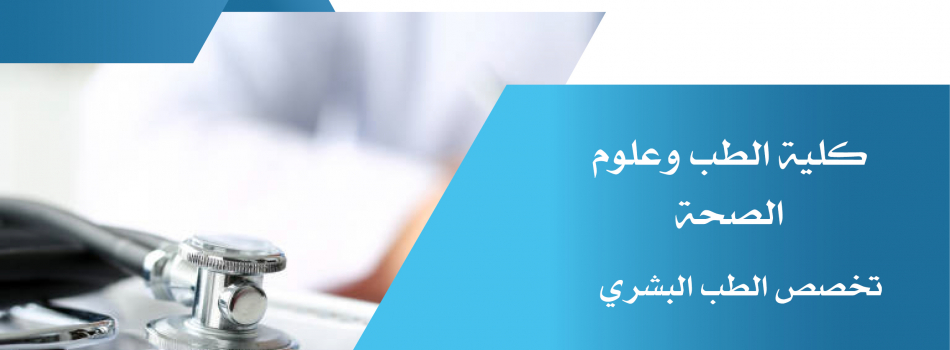
Human Medicine Specialty

- لمحةOverview
- اهداف التخصصObjectives
- المخرجاتOutcomes
- مجالات العمل للخريجينCareer Opportunities for Graduates
- الخطة الاكاديميةAcademic Plan
Early in 2018-2019, Human Medicine Program was launched at Palestine Polytechnic University as the first of its kind in the city of Hebron. The program was intended to promote the health and medical education sectors in Palestine in general and in the province in particular. The inception of this pioneering program came in cooperation with the Ministries of Health, Higher Education and Scientific Research. The program’s curriculum has been developed to provide a Doctor of Medicine Degree in total number of (265) Credit Hours. The hours of the graduation plan are distributed in two stages, as shown in the table below, and the duration of each phase shall be three years, as follows:
- Basic Medical Sciences phase with a total of 134 approved hours, distributed in the first, second and third study years.
- Clinical Medical Sciences phase with a total of 131 approved hours, distributed in the fourth, fifth and sixth study.
This program aims to deliver advanced clinical and academic training to ensure students are well prepared for the medical profession by:
- Fostering the spirit of innovation when dealing with problems.
- Having outstanding skills in conducting and developing scientific research to serve medical practices.
- Maintaining a strong Commitment to assure the health of public and health status of individuals.
- Having the ability to integrate recent technology in the medical field at competitive levels.
- Committing to implement comprehensive quality standards at national and international levels.
- Seeking to empower the community with health awareness and with implementing preventive medicine practices.
- Fostering leadership and team spirit competencies.
Knowledge and Understanding Skills:
Upon successful completion of the program, graduates will be able to:
- Demonstrate a comprehensive grasp of fundamental concepts, principles, and theories in basic and supporting medical sciences, along with a sound understanding of general cultural principles.
- Explain scientific concepts related to specialized medical sciences, as well as the ethical and legal foundations governing medical practice.
- Articulate the key principles of treating both common and life-threatening diseases, encompassing medical interventions for various medical conditions.
- Display proficiency in managing "essential medications" and recognizing their common side effects.
- Describe the clinical symptoms and signs associated with all diseases within their specialty.
Mental Skills:
Upon successful completion of the program, graduates will be able to:
- Accurately diagnose the most prevalent medical conditions by analyzing clinical history data and patient examination results.
- Evaluate health-related issues, both clinical and non-clinical, through evidence-based critical analysis, including those pertaining to healthcare system performance and relevant sciences.
- Select the most suitable and effective treatments for each disease.
- Identify medical cases that necessitate referral to higher levels of care and make informed judgments about whether to proceed independently.
- Efficiently manage material, financial, and human resources within a healthcare setting.
Practical and Professional Skills:
Upon successful completion of the program, graduates will be able to:
- Meticulously record comprehensive medical histories for patients, including information on health behaviors, and conduct necessary patient examinations.
- Apply the principles of clinical diagnosis and essential practical skills with a high level of proficiency, based on scientific evidence and industry best practices.
- Competently operate a variety of medical and technical devices, staying current with scientific advancements in the field.
- Interpret results from laboratory and radiological medical investigations, and accurately compose reports and prescriptions for common conditions.
- Implement various national health programs effectively.
General Skills:
Upon successful completion of the program, graduates will be able to:
- Communicate professionally with patients, colleagues in the medical profession, and professionals from other medical and non-medical disciplines, while upholding ethical standards.
- Foster their own scientific, professional, and research capabilities, staying updated on developments within their specialization, including proficiency in computer applications and information and communications technology.
- Practice skills such as discussion, negotiation, supervision, medical management, problem-solving, and responsible decision-making.
- Work effectively in various circumstances, including normal situations, crises, and epidemics, whether independently or as part of a medical team.
- Recognize the psychological, social, cultural, economic, and environmental factors that influence health and cultivate a compassionate attitude towards patients and their families, fulfilling personal professional responsibilities.
- Governmental institutions and hospitals under the Ministry of Health.
- Private hospitals
- Medical centers
- Opening private clinics
